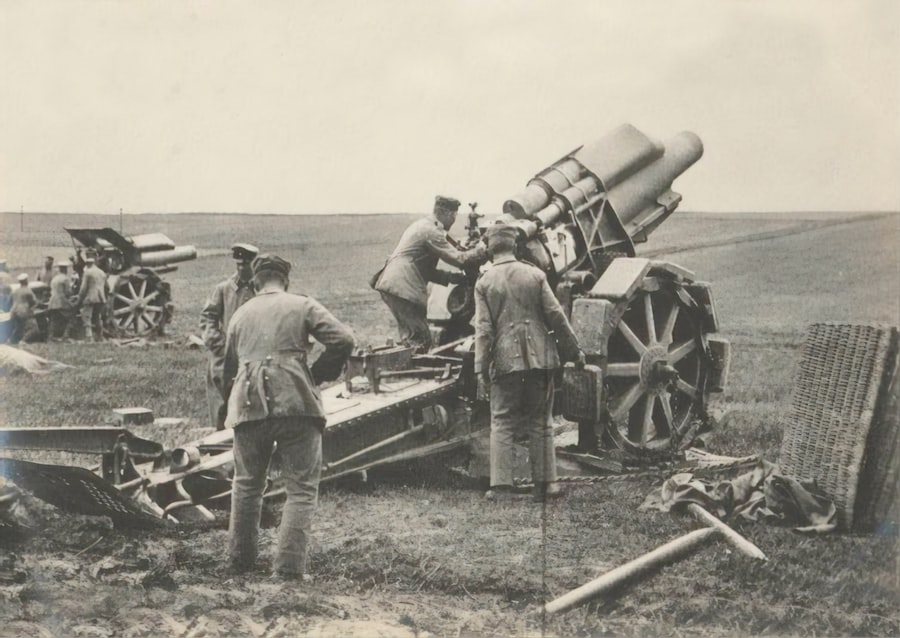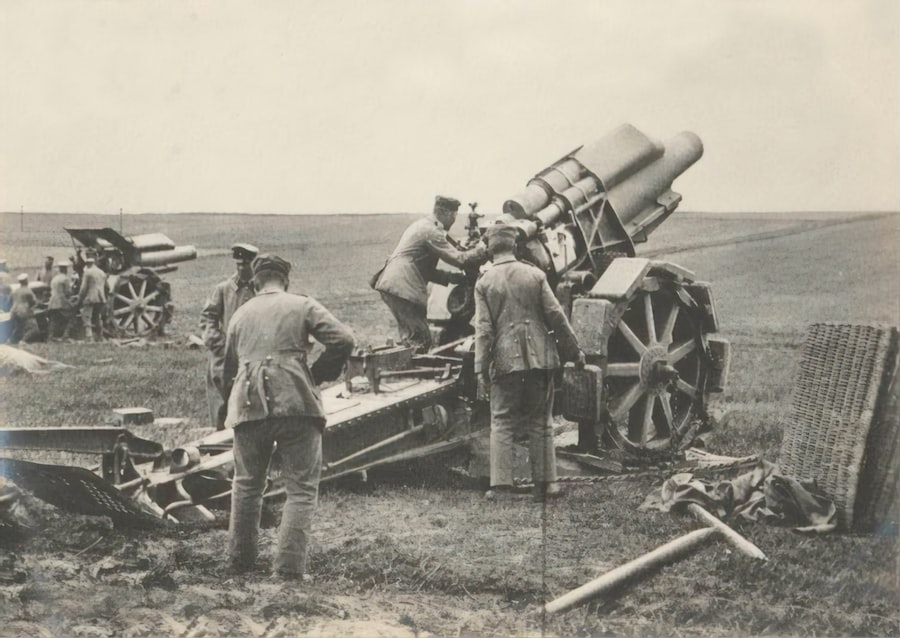The history of classified military experiments is a complex tapestry woven with threads of innovation, secrecy, and ethical dilemmas. From the early days of warfare, nations have sought to gain an advantage over their adversaries through the development of advanced technologies and strategies. The roots of classified military research can be traced back to World War I, when countries began to recognize the potential of chemical weapons and other forms of warfare that required extensive scientific knowledge.
As the world transitioned into World War II, the scale and scope of these experiments expanded dramatically, leading to groundbreaking projects such as the Manhattan Project, which ultimately resulted in the development of nuclear weapons.
The United States and the Soviet Union engaged in a series of covert experiments aimed at developing new technologies, including advanced aircraft, missile systems, and biological weapons.
This period also saw the rise of psychological warfare and mind control experiments, such as the infamous MKUltra program, which sought to explore the limits of human consciousness and behavior. As these classified projects unfolded, they often operated outside the bounds of public scrutiny, raising questions about accountability and ethical considerations in military research.
Key Takeaways
- Classified military experiments have a long history dating back to World War II, with the development of technologies such as radar and the atomic bomb.
- Ethical and legal implications of top-secret research include concerns about human rights violations, lack of informed consent, and potential breaches of international law.
- Classified military experiments have had a significant impact on society, from the development of new medical treatments to the creation of surveillance technologies.
- Whistleblowers play a crucial role in revealing classified military experiments, often facing personal and professional risks to expose unethical or illegal activities.
- The technology and science behind top-secret research involve cutting-edge advancements in fields such as aerospace, cyber warfare, and biotechnology, with potential dual-use applications.
The Ethical and Legal Implications of Top-Secret Research
The ethical and legal implications surrounding classified military experiments are profound and multifaceted. At the heart of these concerns lies the question of informed consent. Many classified projects have involved human subjects, often without their knowledge or consent, leading to significant moral dilemmas.
The infamous Tuskegee Syphilis Study serves as a stark reminder of the potential for exploitation in research conducted under the guise of national security. Such practices not only violate ethical standards but also erode public trust in governmental institutions. Moreover, the legal frameworks governing classified military research are often murky at best.
While laws exist to protect individuals from unethical experimentation, national security interests frequently supersede these protections. The balance between safeguarding sensitive information and ensuring ethical conduct in research remains a contentious issue. As technology continues to advance at an unprecedented pace, lawmakers face the challenge of creating regulations that can keep up with the evolving landscape of military research while still protecting individual rights.
The Impact of Classified Military Experiments on Society

The impact of classified military experiments on society is both profound and far-reaching. On one hand, these experiments have led to significant technological advancements that have permeated civilian life. Innovations born from military research, such as the internet, GPS, and various medical technologies, have transformed everyday experiences and improved quality of life for millions.
The dual-use nature of many military technologies underscores how classified research can yield benefits beyond their original intent. Conversely, the societal implications of such experiments can be deeply troubling. The secrecy surrounding classified projects often breeds suspicion and fear among the public.
When citizens are unaware of the extent to which their government engages in covert research, it can lead to a sense of alienation and distrust. Additionally, the potential for misuse of technology developed through classified experiments raises concerns about surveillance, privacy violations, and even the militarization of civilian life. As society grapples with these complexities, it becomes increasingly important to foster open dialogue about the implications of military research on everyday life.
The Role of Whistleblowers in Revealing Classified Military Experiments
| Whistleblower | Revealed Information | Impact |
|---|---|---|
| Chelsea Manning | Leaked classified military documents to WikiLeaks | Exposed civilian casualties and human rights abuses |
| Edward Snowden | Disclosed NSA surveillance programs | Triggered global debate on privacy and government surveillance |
| Dr. Jeffrey Wigand | Exposed tobacco industry’s knowledge of the harmful effects of smoking | Led to lawsuits against tobacco companies and public awareness of health risks |
Whistleblowers have played a crucial role in unveiling the hidden world of classified military experiments. These individuals often risk their careers and personal safety to expose unethical practices and hold governments accountable for their actions. High-profile cases such as those involving Edward Snowden and Chelsea Manning have brought attention to the extent of surveillance programs and military operations that operate under a veil of secrecy.
Their revelations have sparked widespread debate about privacy rights, government transparency, and the ethical responsibilities of those involved in classified research. The courage displayed by whistleblowers serves as a reminder that accountability is essential in any system that operates behind closed doors. By bringing classified military experiments into the public eye, these individuals challenge the status quo and encourage a more informed citizenry.
Their actions often lead to calls for reform and greater oversight in military research, highlighting the need for mechanisms that protect whistleblowers while ensuring that ethical standards are upheld in sensitive projects.
The Technology and Science Behind Top-Secret Research
The technology and science underpinning classified military experiments are often at the forefront of innovation. These projects frequently involve cutting-edge research in fields such as artificial intelligence, biotechnology, and materials science. For instance, advancements in AI have led to the development of autonomous systems capable of performing complex tasks without human intervention.
While these technologies hold promise for enhancing national security, they also raise ethical questions about decision-making in warfare and the potential for unintended consequences. Moreover, classified military research often operates at the intersection of multiple scientific disciplines. Collaborative efforts between scientists, engineers, and military personnel can yield breakthroughs that would be difficult to achieve in isolation.
However, this interdisciplinary approach also presents challenges related to communication and transparency. As researchers navigate the complexities of classified work, they must balance their commitment to scientific integrity with the demands of national security, often leading to difficult choices about what information can be shared with the broader scientific community.
The Dangers and Risks of Classified Military Experiments

The dangers and risks associated with classified military experiments are significant and multifaceted. One primary concern is the potential for accidents or unintended consequences resulting from experimental technologies. For example, testing new weapon systems or biological agents can lead to catastrophic outcomes if not properly managed or contained.
Historical incidents such as the accidental release of anthrax from a U.S. military lab underscore the real-world implications of classified research gone awry. Additionally, there is a growing concern about the ethical implications of developing autonomous weapons systems that can make life-and-death decisions without human oversight.
The prospect of machines determining targets raises profound moral questions about accountability and responsibility in warfare. As nations continue to invest in advanced military technologies, it becomes imperative to consider not only their effectiveness but also their potential risks to humanity as a whole.
The Connection Between Classified Military Experiments and Conspiracy Theories
The secretive nature of classified military experiments has fueled a myriad of conspiracy theories over the years. Many individuals are drawn to speculative narratives that suggest hidden agendas or nefarious intentions behind government actions. From theories surrounding mind control experiments to allegations of extraterrestrial technology being reverse-engineered by military scientists, these stories often thrive in an environment where information is scarce.
While some conspiracy theories may lack credible evidence, they reflect a broader societal unease regarding government transparency and accountability. The lack of public knowledge about classified projects can create fertile ground for speculation and mistrust. As citizens grapple with complex issues related to national security and technological advancement, it becomes essential for governments to engage in open dialogue with their constituents to dispel myths and foster a more informed public discourse.
The Global Reach of Top-Secret Military Research
The global reach of top-secret military research is a testament to the interconnectedness of modern warfare and international relations. Nations around the world engage in classified experiments not only for national defense but also as part of strategic alliances and partnerships. Collaborative efforts between countries can lead to shared advancements in technology while also raising concerns about arms races and geopolitical tensions.
Furthermore, non-state actors have increasingly become involved in military research through private companies or independent organizations. This trend complicates traditional notions of accountability and oversight, as private entities may operate outside governmental regulations while still contributing to advancements in military technology. As global dynamics continue to evolve, understanding the implications of international collaboration in classified research becomes crucial for maintaining peace and stability.
The Future of Classified Military Experiments
The future of classified military experiments is likely to be shaped by rapid technological advancements and evolving geopolitical landscapes. As nations invest heavily in artificial intelligence, quantum computing, and biotechnology, the nature of military research will continue to transform dramatically. These developments may lead to new forms of warfare that challenge existing ethical frameworks and legal standards.
Moreover, as public awareness grows regarding the implications of classified research, there may be increasing pressure on governments to prioritize transparency and accountability. The demand for ethical considerations in military experimentation could lead to reforms that promote responsible innovation while safeguarding national security interests. Balancing these competing priorities will be essential as society navigates an uncertain future marked by both opportunity and risk.
The Influence of Classified Military Experiments on Popular Culture
Classified military experiments have left an indelible mark on popular culture, inspiring countless works of fiction across various media platforms. From films like “The Manchurian Candidate” to television series such as “Stranger Things,” narratives surrounding secretive government projects often captivate audiences by exploring themes of conspiracy, manipulation, and moral ambiguity. These portrayals reflect societal anxieties about government overreach and the potential consequences of unchecked scientific experimentation.
Moreover, popular culture serves as a lens through which individuals can engage with complex issues related to national security and ethics in research. By dramatizing classified military experiments, creators invite audiences to question authority and consider the implications of technological advancements on human lives. This engagement fosters critical discussions about accountability and transparency while highlighting the need for ethical considerations in all forms of research.
The Efforts to Increase Transparency and Accountability in Top-Secret Military Research
In recent years, there has been a growing movement advocating for increased transparency and accountability in top-secret military research. Activists, scholars, and concerned citizens have called for reforms aimed at ensuring that ethical standards are upheld in classified projects while balancing national security interests. Initiatives such as Freedom of Information Act requests have sought to shed light on previously undisclosed information related to military experiments.
Additionally, some governments have begun implementing measures designed to enhance oversight in classified research programs. These efforts may include establishing independent review boards tasked with evaluating ethical considerations or creating channels for whistleblowers to report misconduct without fear of reprisal. As society grapples with the complexities surrounding classified military experiments, fostering a culture of transparency will be essential for rebuilding public trust and ensuring that scientific advancements serve humanity’s best interests rather than merely advancing national agendas.
In conclusion, classified military experiments represent a multifaceted intersection between innovation, ethics, societal impact, and accountability. As nations continue to navigate this complex landscape, it is imperative that they prioritize transparency while fostering responsible research practices that respect individual rights and promote ethical standards in all forms of experimentation.
In recent years, the topic of classified military experiments has garnered significant attention, sparking discussions about the ethical implications and potential risks associated with such secretive operations. A related article that delves into the intricacies of these covert activities can be found on the Hey Did You Know This website. This article provides insights into the historical context and modern-day implications of military experiments, shedding light on the balance between national security and public transparency. For more detailed information, you can read the full article by visiting Hey Did You Know This.
WATCH THIS! The CIA’s Spy Cat and 3 Other Secret Animal Weapons That Almost Won the Cold War
FAQs
What are classified military experiments?
Classified military experiments are research and development projects conducted by the military that are kept confidential and not disclosed to the public. These experiments often involve advanced technology and weaponry.
Why are military experiments classified?
Military experiments are classified in order to protect national security and to prevent potential adversaries from gaining access to sensitive information about new technologies and capabilities being developed.
What types of experiments are typically classified by the military?
Classified military experiments can include research and development of new weapons systems, advanced surveillance and reconnaissance technologies, cyber warfare capabilities, and other cutting-edge military technologies.
How are classified military experiments conducted?
Classified military experiments are typically conducted in secure and controlled environments, such as military research facilities and testing ranges. They are often carried out by specialized teams of scientists, engineers, and military personnel.
Are there any risks associated with classified military experiments?
There are potential risks associated with classified military experiments, including the possibility of accidents or unintended consequences from the use of advanced technologies. Additionally, there may be ethical and legal considerations surrounding the use of certain experimental technologies.
How does the military ensure the safety and ethical conduct of classified experiments?
The military has strict protocols and oversight mechanisms in place to ensure the safety and ethical conduct of classified experiments. This can include rigorous testing and evaluation processes, adherence to international laws and treaties, and oversight by military and civilian authorities.
